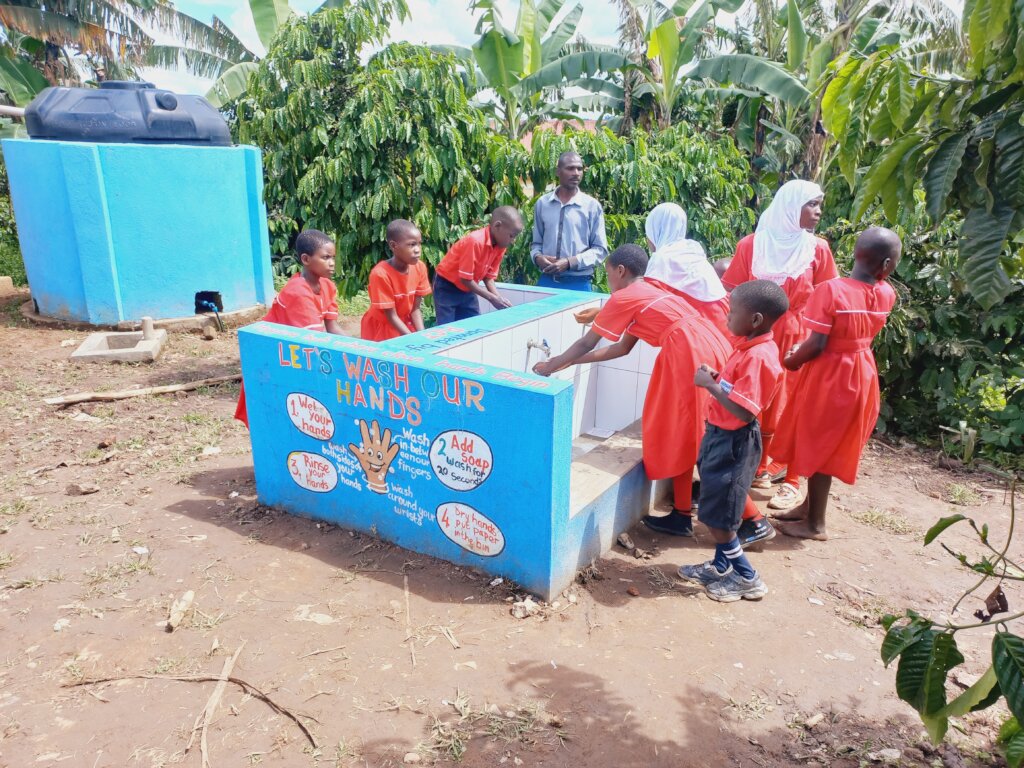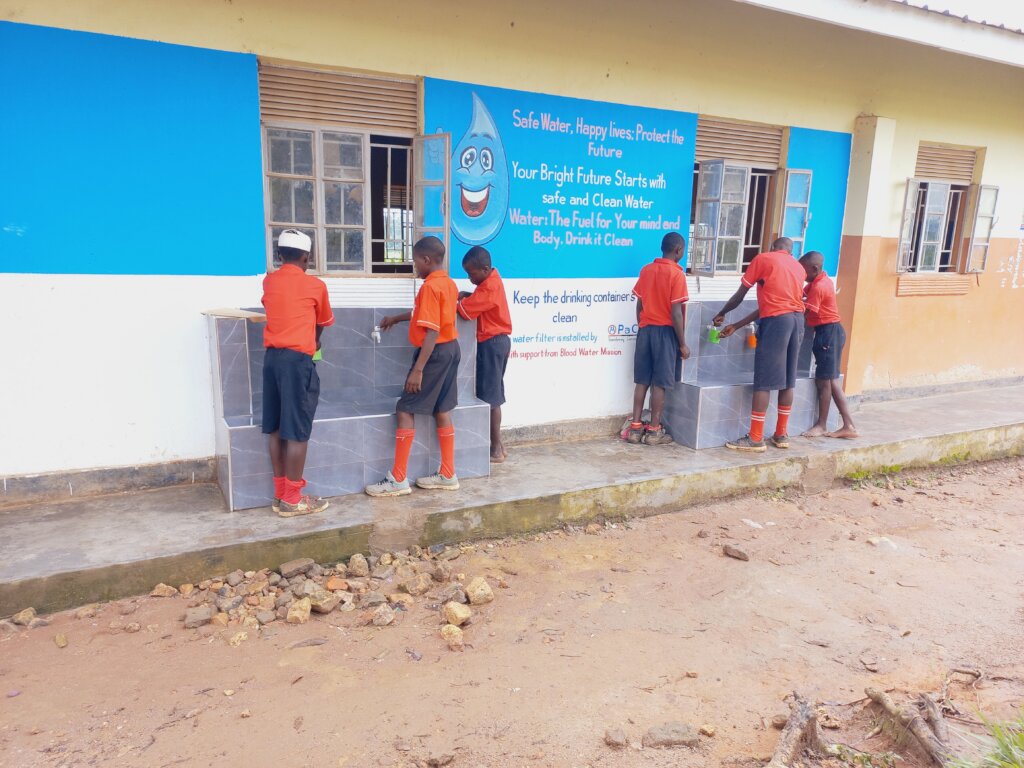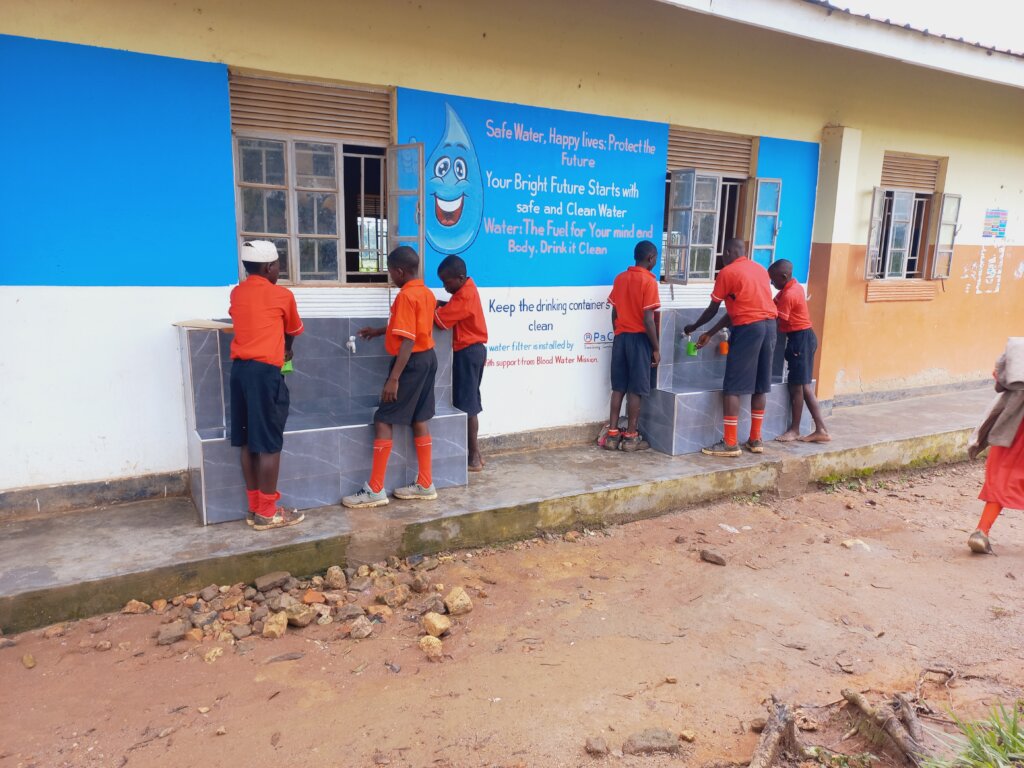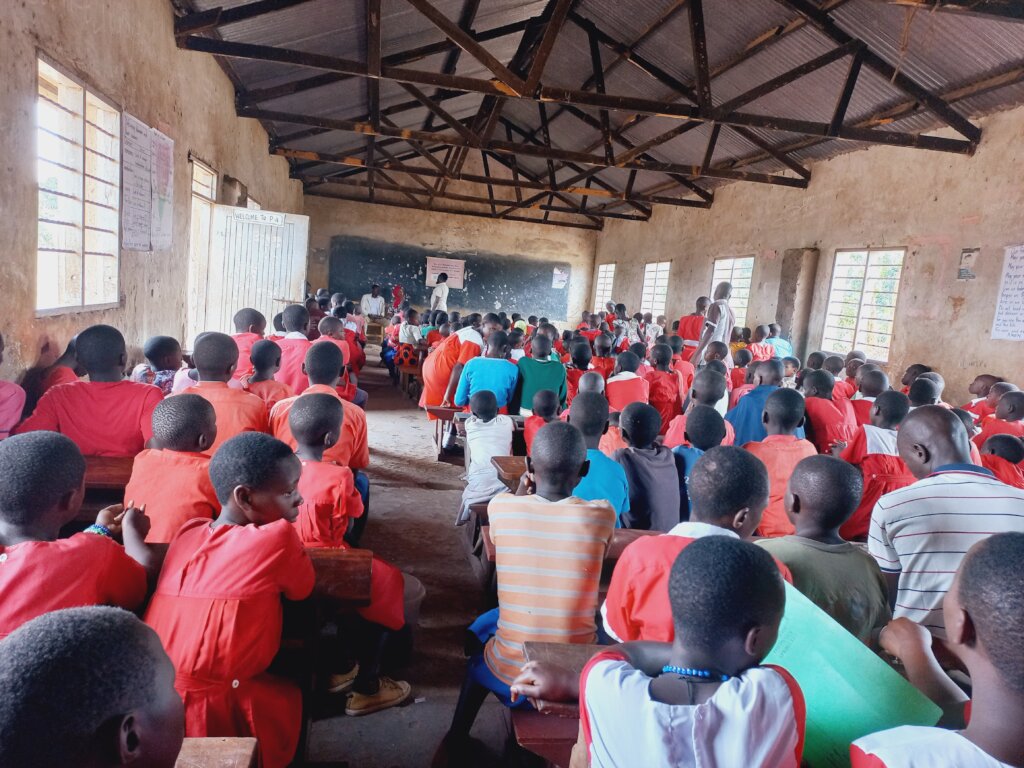By Arinaitwe Jovanice | Communication, Partnership and RM Manager
While handwashing was among the key priority interventions that the World Health Organisation (WHO) announced when COVID-19 was declared a global pandemic, a 2020 joint monitoring programme on water supply, sanitation and hygiene by WHO and UNICEF reported that in Uganda, just 1 in 10 rural schools had a basic hygiene service and according to the Ministry of Water and Environment annual report (2019), the availability of hand washing facilities in schools stood at 42%. Further literature from The National Micro Planning Handbook for Water, sanitation and Hygiene (WASH) in Public Primary and Secondary Schools in Uganda, 2019, indicated that access to water in primary schools stood at only 58% leaving a gap of 42%.
Uganda faces challenges related to water scarcity and contamination, particularly in rural and underserved areas. Many schools lack access to clean and safe drinking water, exposing students to waterborne diseases. This hampers their overall health and poses a significant barrier to regular school attendance. Water-borne diseases such as cholera, dysentery, and typhoid is prevalent in areas with inadequate access to clean water. These illnesses contribute to frequent absenteeism among students due to illness, directly affecting their ability to attend classes regularly and engage in the learning process.
The lack of access to safe drinking water and proper hygiene disproportionately affects vulnerable communities, exacerbating existing educational disparities. Students from marginalized backgrounds often bear the brunt of water-related health issues, hindering their educational progress and perpetuating a cycle of poverty therefore Promoting proper hygiene practices, including regular handwashing, is crucial in preventing the spread of waterborne diseases. Inadequate hygiene facilities in schools contribute to the transmission of illnesses, creating an unhealthy learning environment. Establishing group handwashing facilities is a proactive measure to address this issue and create a more conducive atmosphere for learning.
PaCT therefore proposed a project in schools to addresses a critical need for safe drinking water and improved handwashing in schools, aiming to break the cycle of waterborne diseases and educational disparities. It aligns with national goals, promotes community empowerment, and sets the stage for a brighter and more sustainable future for Ugandan students.
Among the transformative WASH improvement initiatives undertaken in the reporting period was with a partner school named Kassanda Boarding Primary School that emerged as a compelling example showcasing the significant advancements in water, sanitation, and hygiene standards brought about by our project. The schools has a total of 809 (455 boys and 354 girls).
We started with School WASH Improvement Team (SWIT) that was established comprising of 20 members, including the PTA meeting chairman, three teachers, and students. This team is responsible for overseeing and leading all school WASH activities, aiming to drive lasting improvements in water, sanitation, and hygiene which is expected to benefit both students and the wider community. We went ahead and engaged 395 students in sensitisation sessions focusing on hygiene and sanitation practices. The trainings covered handwashing steps and a comprehensive overview of the safe water chain, with the overarching goals of promoting health, preventing diseases, improving educational outcomes, and fostering a sense of responsibility for the operation and maintenance of the upcoming WASH facilities. This proactive approach is deemed crucial, instilling a sense of responsibility before the construction phase begins.
We then constructed a group handwashing facility equipped with six taps, which now benefits a total of 809 students. This essential facility represents a significant investment in the health and well-being of our students, by promoting good hygiene practices and contributing to the establishment of a healthier learning environment.
PaCT then installed a water filtration system in the school. This measure is crucial in safeguarding the health and well-being of students and ensuring access to clean and safe drinking water. Beyond addressing immediate health concerns, it aligns with long-term sustainability goals. The successful completion of this safe drinking facility is now successfully benefiting the 809 learners.
The Deputy Headteacher expressed his heartfelt gratitude for the positive impact of our implemented initiatives. The introduction of a handwashing facility has played a transformative role in shaping hygiene practices within the school. Additionally, he conveyed special appreciation for the drinking water system, constructed with sustainable, locally sourced materials. He expressed optimism that this system would not only enhance the overall health of the learners but also contribute to reducing absenteeism, reflecting the tangible success of our efforts in fostering a healthier and more conducive learning environment.
Links:
Project reports on GlobalGiving are posted directly to globalgiving.org by Project Leaders as they are completed, generally every 3-4 months. To protect the integrity of these documents, GlobalGiving does not alter them; therefore you may find some language or formatting issues.
If you donate to this project or have donated to this project, you can receive an email when this project posts a report. You can also subscribe for reports without donating.
Support this important cause by creating a personalized fundraising page.
Start a Fundraiser



